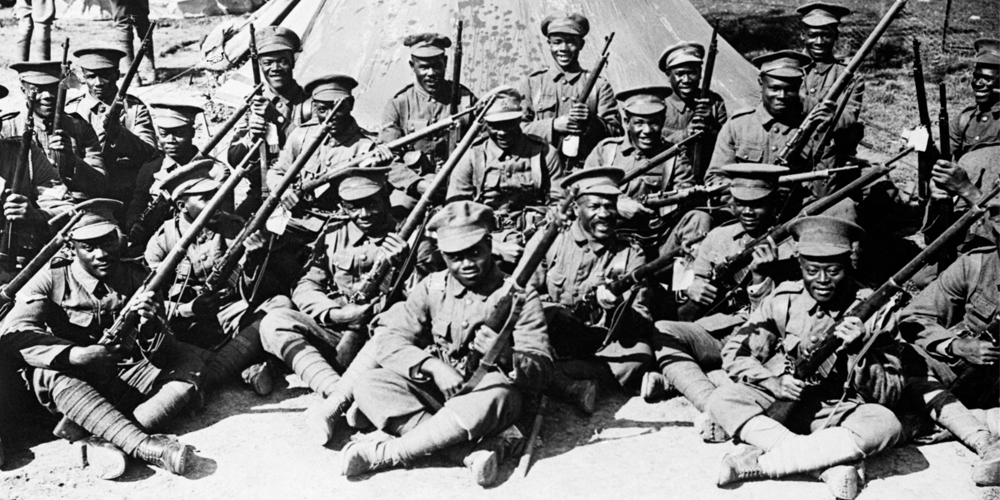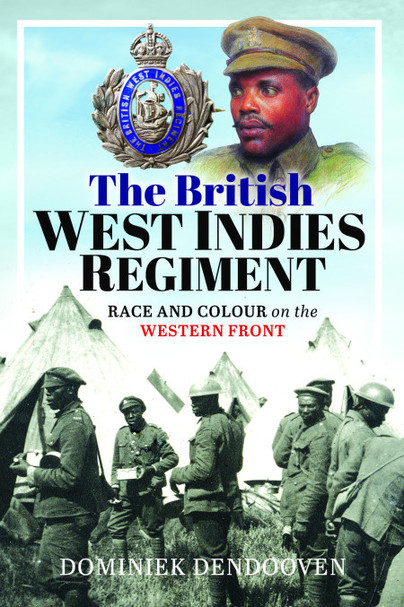British West Indies Regiment
At the outbreak of war in 1914, a significant number of countries in the Caribbean (then the West Indies) were staunchly loyal to Britain. Groups of volunteers began to arrive from all parts of the Caribbean to join the British Armed Forces. Some came to Britain as stowaways to “Serve Kind and Country”.
The following newspaper report from the “Stratford Express” (London) 19 May 1915, page 3: “THE DOCKS – Black Men for the Front At West Ham Police Court To-day” “Nine Black men, natives of Barbadoes, West Indies, were charged with being stowaways on the S.S. Danube. Mr J.W. Richards, who prosecuted for the Royal Mail Steam Packet Company, said that the S.S. Danube made a voyage from Trinidad to England, and the day after leaving Trinidad the ship called at Barbadoes. It was presumed that the men came aboard there for the day. Afterwards they were found on the vessel. Mr Gillespie in court said “In a dark corner, I suppose”? and the people in court laughed. Mr Richards continued that the men were put to work, and they did not cause any trouble. He was told that the men were desirous of enlisting in the Army. Mr Gillespie in court said: “What, do they want to enlist in the Black Guards”? and there was laughter in court. Detective Sergeant Holby said he had made enquiries at the local recruiting office and they told him they could not enlist because of their colour, but if application was made to the War Office no doubt they could enlist in some regiment of Black men. The accused were remanded for a week.”
There were also reformers in the Caribbean region who were attacking the Crown and saw the war as important for their movement for representative governance, to help them bring political and constitutional change. Pro-participation arguments provided the basis for official representations to be made by the various governors to the British government. British officials were not keen on having people of African descent in the Caribbean serve on the Western Front – the War Office was tried to prevent any people from the West Indies enlisting, and actually threatened to repatriate any who arrived.

